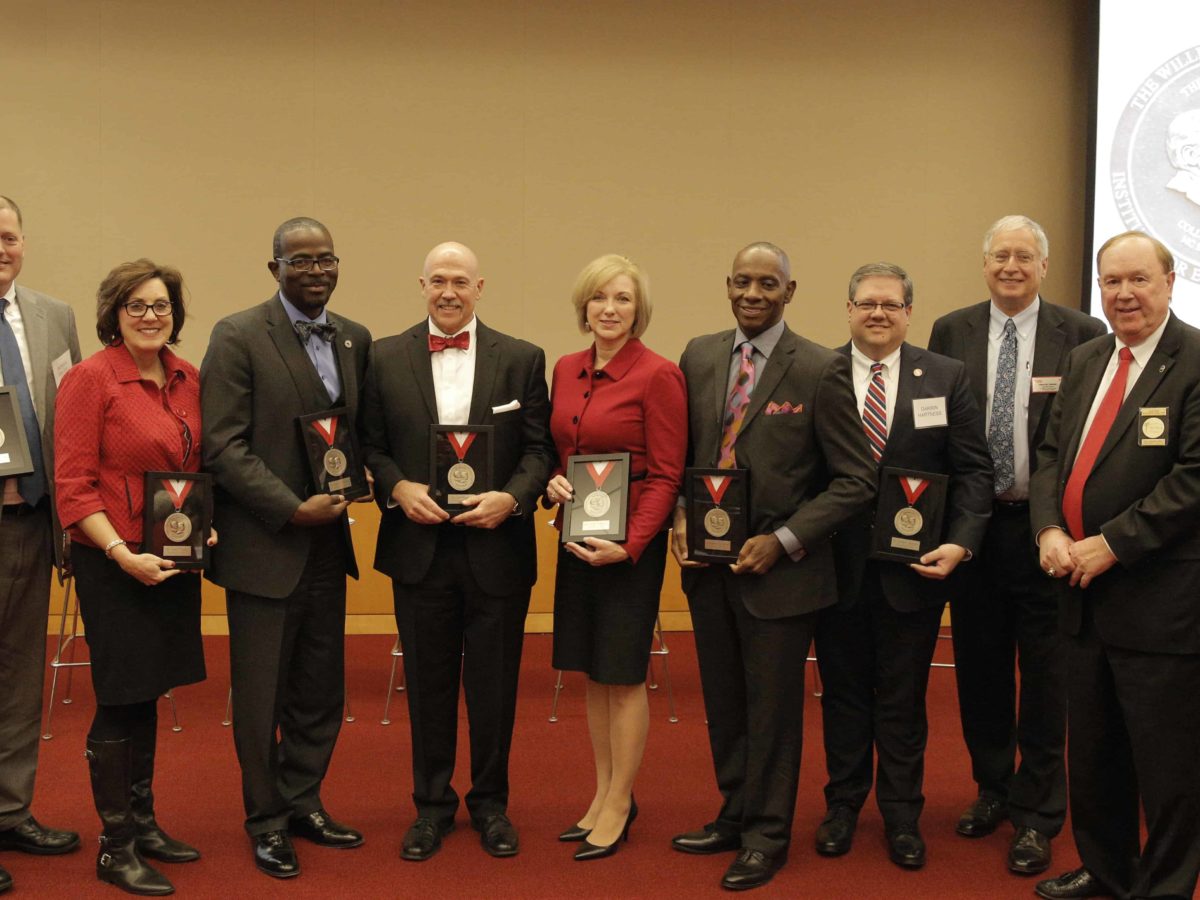

The following is a press release from the Friday Institute for Educational Innovation
Raleigh, North Carolina — Each year since 2006, The Friday Institute for Educational Innovation has presented the Friday Medal to honor the memory and legacy of Bill Friday, who led the UNC system as its president for 30 years. The selected recipients are outstanding researchers, practitioners, or policymakers who have made significant, distinguished and enduring contributions to education throughout the country.
This year, The Friday Institute collaborated with the North Carolina School Superintendents Association to select seven superintendents who exemplify strong, innovative leadership over at least five years, with documented results in improving students’ learning and implementing digital-age approaches to teaching and learning. The seven 2017 recipients and their districts are:
• Darrin Hartness – Davie County
• Anthony Jackson – Vance County
• Jeff McDaris – Transylvania County
• Janet Mason – Rutherford County
• Lynn Moody – Rowan-Salisbury
• Patrick Miller – Greene County
• Robert Taylor – Bladen County
“This year we wanted to convey how much we value the educational leaders from the rural parts of our state, where the schools are also so much the center of the communities,” said Dr. Glenn Kleiman, Executive Director of The Friday Institute. “In recognizing this selected group, we salute all the education leaders, superintendents, principals or teachers who bring deep commitments to providing an excellent education to their students in rural districts.”
Rural districts make up a significant portion of North Carolina, with 80 counties out of 100 considered rural by the U.S. Census Bureau–having a population density no more than 250 people per square mile. Leaders of small, under-resourced rural districts face unique challenges, but the creative and innovative Friday Medal recipients have each found ways to engage their communities in improving and updating their schools to prepare their students for careers, college, and citizenship in the rapidly changing, global, and technological age in which they live.
“The biggest priority in our district is to continue to improve the quality of educational opportunities for our students and to sustain the numerous improvements that we have made in recent years, especially equity of access to early college experiences, enhancing the use of digital learning tools and resources, and increasing the number of students who graduate prepared for college and careers,” said Janet Mason, Rutherford County Superintendent and North Carolina Association of School Administrators’ 2018 Superintendent of the Year.
“Education remains the great equalizer in our society,” said Robert Taylor, Bladen County Superintendent. “Without adequate access and training in the use of technology as a teaching tool, we run the risk of limiting to many, particularly rural communities, access to the great equalizer.”
This year’s award recipients were recognized on Wednesday, November 15, at The Friday Institute on NC State’s Centennial Campus. Former Governor of North Carolina James B. Hunt and Representative Craig Horn spoke to honor the recipients.
“We are embarking on a new digital age,” said Horn. “Through the use of the digital environment, this is an opportunity to see over the next hill, not just down the street. With your leadership, what you’ve exemplified, how you carry yourself every day–that’s what we need.”
Former Governor Hunt also stressed the importance of strong school leadership.
“The school is the most important place in a community,” said Hunt. “If you want to talk about progress in your county, then you do something to improve your schools. That’s the most important thing you can do for economic development, of having good people and being the kind of folks that we ought to be. Thank you all for leading that work.”



